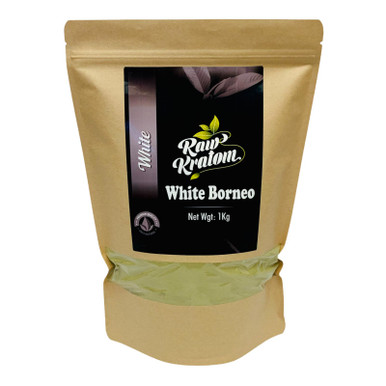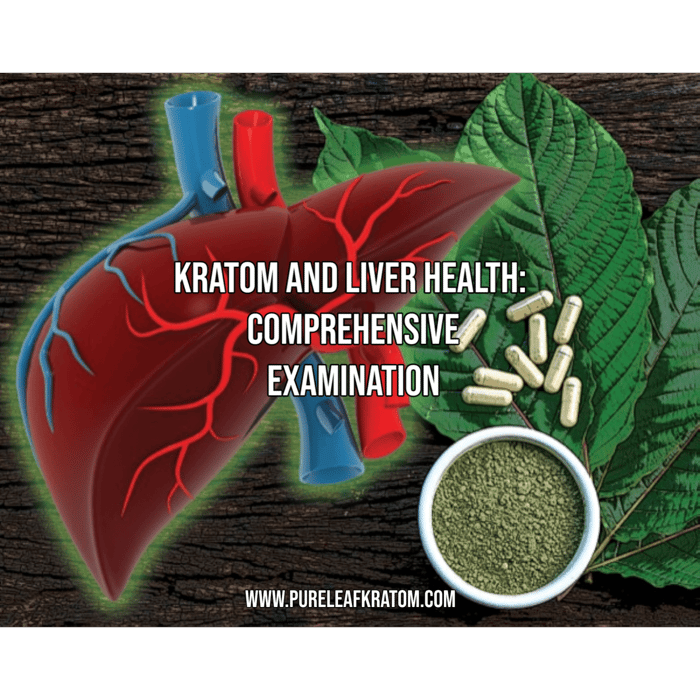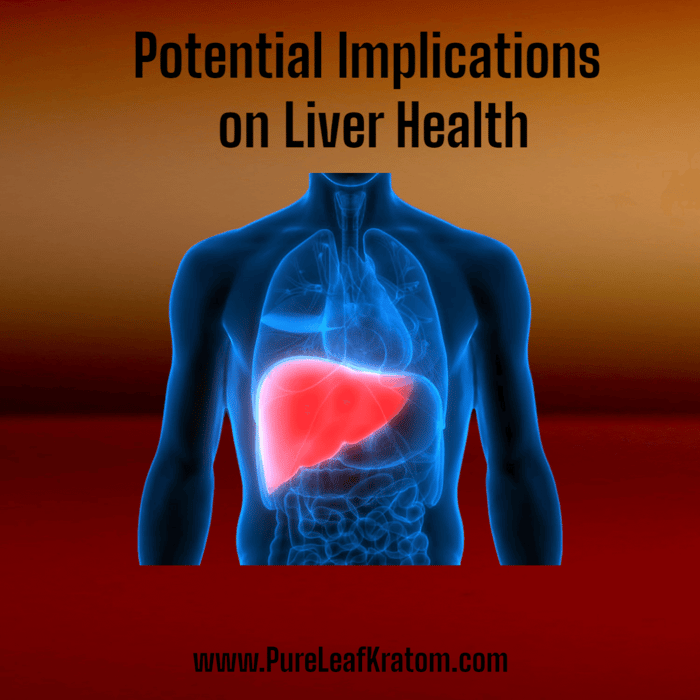
“Harnessing The Power Of Kratom For Weight Loss: A Comprehensive Guide
Unlocking the Weight Loss Potential of Kratom
The pursuit of health and fitness often sets individuals on the path of exploring various tools to aid their wellness journey. One such natural tool creating significant buzz is Kratom, widely known for its potential in promoting weight loss. Originating from southeast Asia, this tropical tree has been utilized over centuries for its energizing and pain-relieving properties. Recently, science has added a new dimension to its benefits - weight management.
This article serves as a comprehensive guide, delving into the scientific relationships between Kratom and weight loss. While the connections seem promising, it's critical to note that no definitive conclusions have been drawn yet due to the current limitations in Kratom research. Hence, it requires further examination to understand fully the potential benefits and risks.
Unraveling the Science of Kratom and Weight Loss
Through this conversation, we will explore how Kratom's active compounds; mitragynine and 7-hydroxymitragynine, might influence metabolic pathways leading to a healthier weight status. These compounds will be studied in-depth, alongside their potential effects in lessening abdominal obesity and lower triglycerides.
Moreover, we'll probe how incorporating Kratom into a healthful diet and regular exercise can potentially steer individuals towards achieving their fitness goals and lean muscle development. Nevertheless, we want to emphasize that depending solely on Kratom for weight loss is not recommended.
Navigating the Article
As we delve into this fascinating area of our wellness exploration, we'll compartmentalize our approach into distinct sections. Starting with an in-depth understanding of Kratom and its active compounds, we'll explore the scientific connections to weight loss in detail. Subsequently, we'll delve into how Kratom can be potentially harnessed as part of a broader weight management plan, involving activity tracking, nutritional counseling, and behavioral changes.
Focusing on metabolism boosting, appetite suppression, and fat burning, we will cover all facets of weight loss, effectively linking them to the potential benefits of Kratom. Lastly, we'll underscore the importance of maintaining a balanced lifestyle, quality nutrition and responsible Kratom usage for effective weight management.
Get ready to embark on a comprehensive exploration of arguably one of the most controversial yet fascinating natural tools for weight loss - Kratom.
Kr8om Kratom Capsules 500mg Maeng Da

$8.50
Kr8om Kratom Capsules 500mg Maeng Da Discover a kratom experience like no other with Kr8om Kratom Capsules 500mg Maeng Da, a product that embodies the...… read more
Out of Stock
Exploring Kratom and its active compounds
Kratom, with its scientific name Mitragyna speciosa, is a tropical tree⸺a proud member of the coffee family⸺indigenous to Southeast Asia. Often, we find its leaves used in various traditional treatments thanks to the psychoactive components they contain: mitragynine and 7-hydroxymitragynine, which act as partial opioid agonists ("Kratom (Mitragyna speciosa) drug profile - emcdda").
Unpacking the origin, cultivation, and traditional uses of Kratom
Kratom's history is deeply rooted in the culture of Southeast Asia. Local folk medicine leverages its leaves to combat fatigue and for pain relief. It has also been used as an intestinal deworming agent and an antidiabetic. The leaves, when used in low doses, can provide a layer of stimulation, whereas higher doses are known to channel sedative-narcotic effects ("Kratom (Mitragyna speciosa) drug profile - emcdda"). However, patterns of use differ across geographic locations. In the west, Kratom is often used recreationally or for self-managing pain and treating opioid withdrawal ("Current perspectives on the impact of Kratom use").
Controversies and stigma surrounding its usage across cultures
The use and control of Kratom have ignited debates globally. Despite its traditional uses, there have been mentions of potential health impacts ranging from dependency and withdrawal symptoms to possible liver damage resulting from chronic high-dose use or interactions with other drugs. As such, Kratom's legal and regulatory status varies around the world with control enacted in several countries ("Current perspectives on the impact of Kratom use"). Further research is essential to fully discern its therapeutic potential and safety.
Deep dive into Kratom's active compounds: mitragynine and 7-hydroxymitragynine
Kratom's potential bioactive properties can be traced back to two indole alkaloids, mitragynine and 7-hydroxymitragynine. These compounds interact with the body's opioid receptors, but their effects are distinct from classic opioids. Delving into their molecular structure can provide deeper insights into their actions and potential impacts on metabolic health.
Raw Kratom Powder White Borneo

$49.89
Raw Kratom Powder White Borneo Raw Kratom Powder White Borneo stands as a testament to the exceptional qualities that emerge when a product is directly...… read more
Out of Stock
The role of mitragynine in metabolic pathways and its potential impact on weight loss
Mitragynine, being a key active compound of Kratom, takes center stage in conversations linking Kratom to improved metabolic health and weight loss. It's speculated that this compound might actively participate in metabolic pathways, thereby linking its use to reduced abdominal obesity and lower triglyceride levels. However, confirmatory scientific evidence still needs to be accumulated, as current findings are mainly observational.
Examination of the current research linking Kratom to reduced risks of metabolic syndrome
Metabolic syndrome is a cluster of conditions that arise together, increasing your risk of heart disease, stroke, and type 2 diabetes. These conditions include increased blood pressure, high blood sugar, excess body fat around the waist, and abnormal cholesterol or triglyceride levels. Early research has indicated a potential benefit of Kratom in reducing risks associated with these conditions.
Detailed explanation of how Kratom usage may potentially reduce abdominal obesity
One of the significant effects of metabolic syndrome is abdominal obesity. While maintaining a healthy diet and active lifestyle is the first defense against this condition, research suggests Kratom could potentially aid this battle too. Specifically, its active compounds might influence satiety signals thereby promoting portion control, calorie deficits, and aiding appetite suppression. ("Current perspectives on the impact of Kratom use").
Analysis of studies connecting Kratom to lower triglyceride levels
Triglycerides are a type of fat (lipid) found in your blood. High levels can increase the risk of heart disease. Current research hints at a potential connection between Kratom use and lower triglyceride levels, which, combined with a balanced nutritional plan and regular exercise, could help in maintaining a healthier weight status ("Current perspectives on the impact of Kratom use").
Kratom and Weight Loss: A Deeper Look
Kratom's potential influence on weight loss is a topic of rising interest, largely due to recent studies suggesting its potential impact on metabolic health. Evident correlations arise from observations of appetite suppression, potential metabolism boosting, and perhaps, the stimulation of fat burning. Let's navigate deeper into these intriguing possibilities.
Evaluation of How Kratom Potentially Affects Appetite Suppression
Anecdotal reports frequently associate Kratom usage with a suppressed appetite. However, the relationship between consumption of this tropical tree and the effects on portion control and hunger are yet to be fully clarified by scientific research.
Exploration of The Link Between Kratom and Portion Control
Regulation of portion sizes is a fundamental aspect of a successful weight loss regimen. The observed appetite suppressing properties of Kratom could potentially aid in this, by reducing the urge to overeat. While no specific research has directly assessed the relationship between Kratom and portion control, some Kratom users report diminished food cravings along with a perceived sense of fullness, thus reducing their overall calorie intake.
Examination of Claims Linking Kratom to Hunger Control
Similarly, assertions that Kratom can control hunger are prevalent, although they primarily stem from individual anecdotes rather than controlled studies. Some users suggest that they experience reduced hunger cravings upon incorporating Kratom into their daily routines. However, more research is needed to affirm this claim and decipher the mechanisms behind it.
Assessment of Kratom’s Possible Roles in Boosting Metabolism
Exploring a potential connection between Kratom and metabolic rate enhancement can provide valuable insights into its potential role in creating calorie deficits and promoting fat loss.
Examination of The Concept of Basal Metabolic Rate and How Kratom Can Potentially Increase It
Your basal metabolic rate (BMR) embodies the amount of energy expended in a resting state to maintain vital body functions. If Kratom could elevate BMR, it might aid in creating a caloric deficit without dietary restrictions or additional physical activity. A study found that Kratom users had less prevalence of metabolic syndrome, likely due to the active alkaloid's effects on glucose and lipid metabolism regulation. Although promising, it's crucial to reiterate that research is still in the early stages.
Deep Dive into The Hormonal and Cellular Mechanisms Through Which Kratom May Aid in Creating a Calorie Deficit
Creating a caloric deficit, i.e., consuming fewer calories than you burn, triggers weight loss. Kratom's impacts on the regulatory pathways of lipid and glucose metabolism might possibly aid in creating such a deficit. The specific mechanisms through which Kratom interacts with cellular and hormonal functions impacting metabolism and energy burning warrants further investigation.
Analysis of The Association Between Kratom and Fat Burning
Unearthing the potential relationship between Kratom and fat oxidation, and the implications of its usage for meal planning and mindful eating, could provide meaningful insights into achieving healthier weight status.
Insights on How Kratom Could Potentially Affect Fat Oxidation and Lipolysis
While the link between Kratom use and enhanced fat oxidation is currently hypothetical, the observed lowering of triglycerides in Kratom users suggests its potential to influence lipid metabolism pathways. However, whether these effects directly translate into increased lipolysis (the breakdown of fats into energy) is a query warranting further studies.
The Implications of Kratom Usage for Meal Planning and Mindful Eating
Given Kratom's potential role in portion control and appetite suppression, it might influence meal planning and promote mindful eating. For instance, individuals might find it easier to adhere to scheduled meals or resist unnecessary snacking if Kratom effectively reduces hunger pangs. That said, individual experiences and scientific findings may differ, making further research paramount.
Evaluation of Kratom's Potential Contribution to Lean Muscle Development
Emerging discussions denote the potential role of Kratom in promoting lean muscle development. Despite this, a deep dive into the scientific literature reveals that there is still a lot to learn about the potential benefic effects of this plant on muscle protein synthesis.
Krave Kratom Trainwreck Extract Shot 10mL

$5.55
Krave Kratom Trainwreck Extract Shot 10mL Step aboard the Kratom train and embark on an extraordinary journey with one of Krave's most popular extracts -...… read more
Kratom as Part of a Comprehensive Weight Management Plan
Given the potential of Kratom as an appetite suppressant and possible aid in weight loss, it's worth exploring how it could be integrated into a comprehensive weight management strategy. This would not replace conventional approaches - rather, it could potentially enhance their effectiveness. However, it's crucial to remember that the research on Kratom's potential for weight loss is preliminary and the evidence is far from definitive. Just like any other weight loss tool, Kratom needs to be used responsibly and combined with a balanced diet and active lifestyle to ensure healthy, sustainable weight management.
Pairing Kratom with a Healthy Diet and Active Lifestyle
Proper nutrition and regular physical activity are the building blocks of successful weight management. Incorporating Kratom, while maintaining these core elements, could potentially amplify the impact. Tracking your physical activities and nutritional intake could be an effective way to maximize any benefits from Kratom. There is a wide array of health-focused technologies, such as food journals, macro counting apps, and nutritional trackers, which can aid in maintaining the right balance. Here, Kratom could be seen as an additional ingredient, one that might help control hunger and manage portion sizes, thus contributing to an overall calorie deficit. But always remember to consult a healthcare practitioner before integrating Kratom into your diet to ensure you use it responsibly and to avoid any potential side effects.
Accountability is Key: Peer Support, Wellness Coaching, and Behavioral Changes
Any successful weight management plan benefits from social engagement. Having an accountability partner or participating in wellness coaching can have a profound impact on your journey. Building healthy lifestyle habits often means breaking old ones - a challenge that's easier tackled together, with support and encouragement. In this context, supplementation with Kratom might add extra foundation to your weight loss efforts as you work on behavioral changes.
Sustainable Weight Loss and the Role of Kratom
It's critical to remember that there are no magic bullets - sustained weight loss requires a comprehensive approach that includes lifestyle changes, nutritious eating, and physical activity. As part of such an approach, Kratom could potentially play a role, whether aiding with appetite suppression, energy enhancement, or craving control. This promising potential means it deserves research attention. It's likewise important to keep monitoring and adjusting your weight management plan based on individual responses to Kratom and overall progress towards your fitness goals.
Potential Risks and Limitations of Kratom Usage
While Kratom appears promising as a natural supplement to aid in weight loss and influence metabolism, it is crucial to be informed of potential risks. Kratom has a number of potential side effects, with some being more serious and occurring frequently.
A Discussion on Potential Negative Effects of Kratom
Users of Kratom may experience a range of negative effects. Common side effects include nausea, constipation, and dizziness. While these symptoms may be unpleasant, they usually subside with time or can be mitigated by adjusting the dose. It’s worth noting that the higher the dose, the greater the risks of these negative effects, suggesting a dose-dependent risk profile.
Some Kratom users may experience dependency, presenting symptoms such as muscle spasms, fever, and sadness upon withdrawal. Serious and relatively rare risks such as seizures, kidney damage, and intrahepatic cholestasis, a type of liver disease, have also been documented. These issues are particularly concerning when Kratom is used alongside other drugs, especially depressants targeting the central nervous system, which may lead to serious complications including sedation, respiratory depression, and, in severe cases, coma or even death.
Risks are further heightened by the potential for consuming contaminated or adulterated Kratom products, making careful consumer education essential. Despite these potential harms, there is still limited research on Kratom's health effects in the U.S., and more studies are necessary to fully understand its safety profile and public health impact.
The Necessity for Medical Guidance When Using Kratom for Weight Management
Given the potential side effects and interactions, it is crucial for anyone considering Kratom for weight management to do so under the supervision of a medical professional. Physicians can provide guidance on appropriate dosages, duration of usage, and offer advice on how to monitor for potential side effects. Remember, achieving your fitness goals safely should always take precedence over any potential quick-fix, and efforts at balance in nutrition intake, meal planning, and lifestyle changes shouldn't be underestimated.
Legal Restrictions on Kratom Usage Worldwide
While many users see Kratom as an ideal natural alternative treatment, it's important to be aware of the legal restrictions around its use. Health authorities around the world such as the DEA, have labeled Kratom a "drug and chemical of concern", and its legality varies greatly from region to region. It remains essential, therefore, to research and understand the legal implications in your area before considering Kratom use as part of your weight management plan.
Disclaimer
The products discussed here and any claims or suggestions made have not been evaluated by the Food and Drug Administration (FDA). This content is not intended to diagnose, treat, cure, or prevent any disease.
The information on this website is provided for general informational purposes only and should not be relied on as the sole basis for making decisions – we encourage consulting primary, qualified, more complete, or professional sources. Any reliance on the material on this site is at your own risk.
Information shared on this site may be updated at any time and may include information or data that are no longer current, accurate, or complete and is provided for your reference only. We are not obligated to update published content, and it is the reader’s responsibility to monitor any changes and to consult with primary, qualified, more complete, or professional sources.
We make no guarantees regarding the completeness, accuracy, or reliability of the information provided, nor do we warrant that any products, services, or materials offered will meet individual expectations. Use of this site and its content is at your own discretion and risk.




